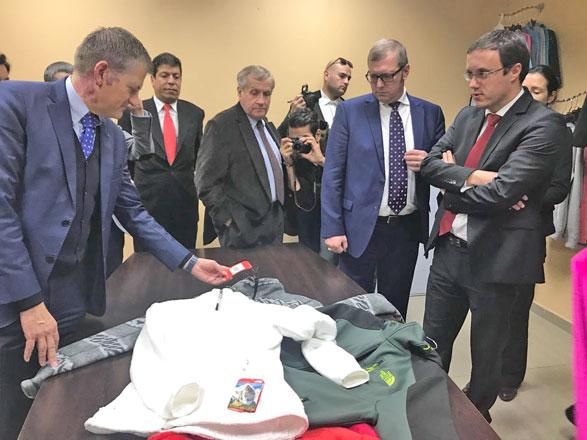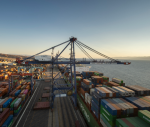You are here
Strong EU-Jordan partnership never more important than now — ambassador
By Dana Al Emam - Nov 02,2015 - Last updated at Nov 02,2015
AMMAN — The EU is expected to finalise its European Neighbourhood Policy (ENP) Review on November 18 after consultations with all partners, including Jordan, EU Ambassador to Jordan Andrea Matteo Fontana said Monday.
The policy review seeks to develop responses that are more oriented to the needs of the concerned countries, taking into consideration the different requirements of EU neighbours, the ambassador said at the opening of a two-day conference marking 20 years of Euro-Mediterranean relations.
The review, which underwent deliberations with member states, neighbouring countries, civil society, think tanks and researchers over the first half of this year, is based on four main pillars: greater differentiation, encouraging ownership of neighbourhoods, focusing on a limited number of sectors and more flexibility.
Nonetheless, issues of migration, economic development, youth and security will receive the greatest attention in the policy review, Fontana said.
Although the ENP is crucial for promoting peace, stability and prosperity in Europe, it also boosts bilateral trade, promotes inclusive economic growth and encourages political reform in partner countries, the ambassador said, describing such ties as the “tool” for bringing the EU and its neighbours together.
He noted that Jordan was the first Mediterranean ENP partner country to achieve “Advanced Status”, which allows closer cooperation in many areas and more specific commitments from both sides.
“A strong EU-Jordan partnership has never been more important than now, where Jordan is at the forefront of the fight against terrorism and extremism, and has shown tremendous solidarity in hosting a massive influx of Syrian refugees,” Fontana said at the event, held by the University of Jordan’s Centre for Strategic Studies (CSS).
A lot has changed in the EU and in the region since the ENP was launched 10 years ago, he noted, adding that in these conditions, it is now “high time” for a review to make sure that the ENP is still fit for its purpose.
“To take on this challenge, we need to refresh our ENP approach, reinforce the partnership with our neighbouring countries, and make our priorities more clear,” he said, citing emerging threats such as Daesh, economic growth, job creation and political reform.
For his part, CSS Director Musa Shteiwi highlighted the threat of Daesh and the Syrian refugee crisis as two major common challenges facing the EU and this part of the world.
These issues, as well as other political, economic and security challenges require “new thinking of new policies” that address the symptoms and the root causes, he said.
The two-day conference, featuring Arab and foreign researchers, is held in cooperation with the University of Southern Denmark’s Centre for Contemporary Middle East Studies.
Related Articles
AMMAN — A strong partnership between Jordan and the EU "has never been more important than now", the union's ambassador to Jordan, Andrea Ma
Acknowledging the severe impact of the Syrian crisis on the Kingdom, the EU has provided more than 225 million euros of humanitarian and development aid to Jordan over the last two years in support of refugees and host communities.
AMMAN — Ambassadors of EU member states on Wednesday joined the EU Ambassador to Jordan Andrea Matteo Fontana in a field visit to comp















